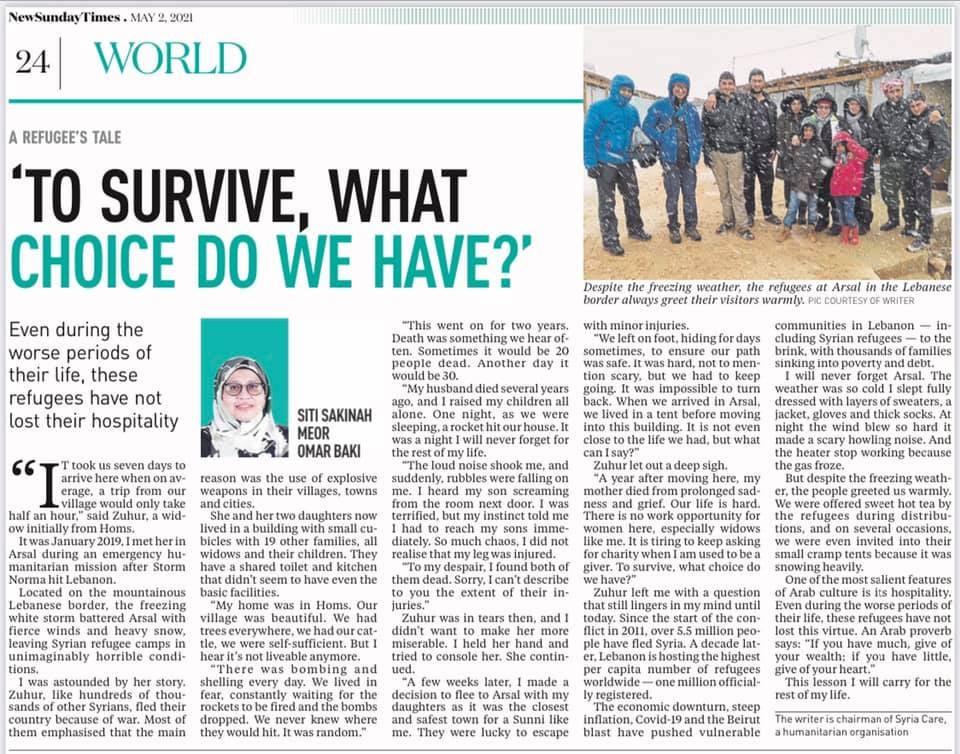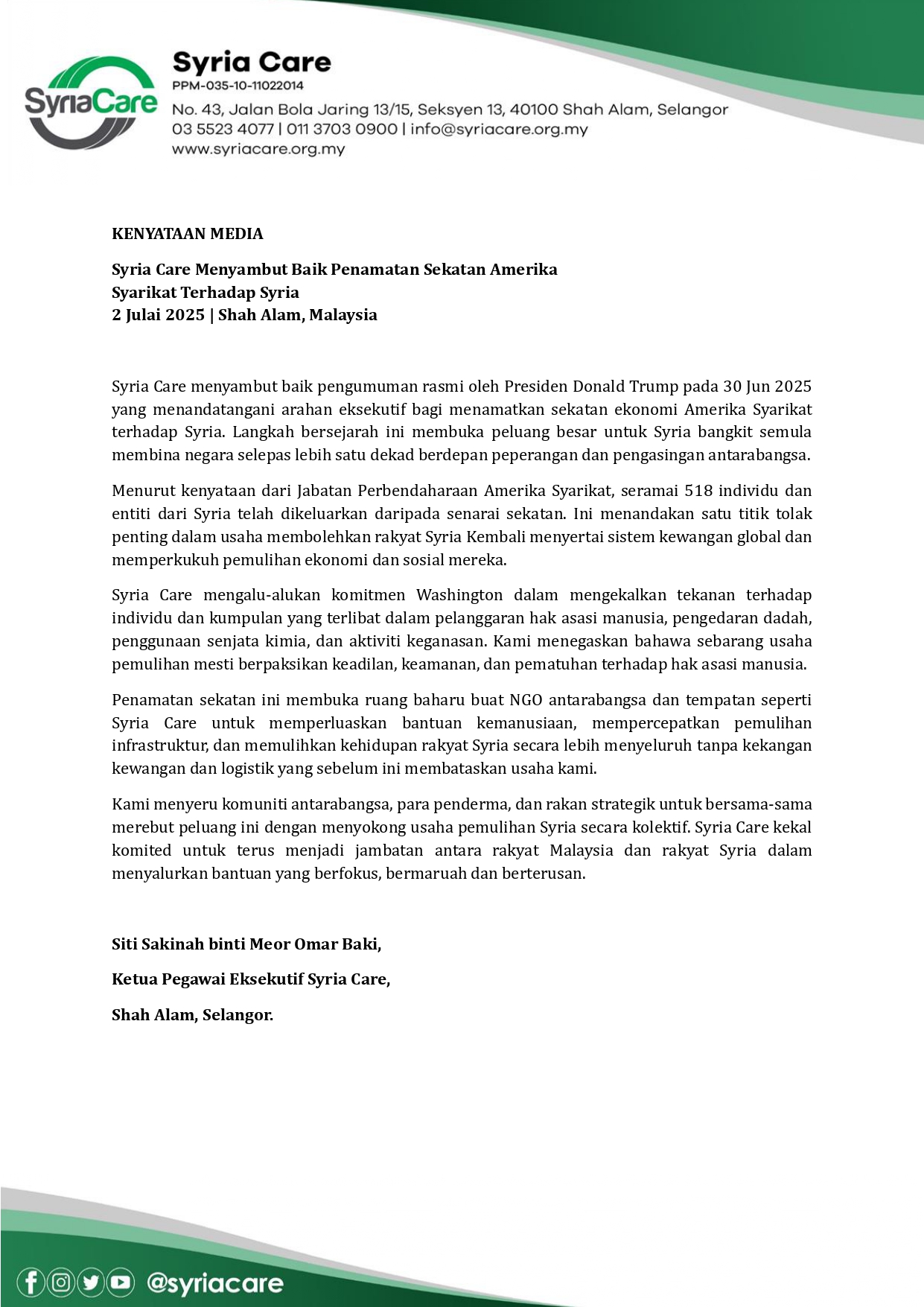“It took us seven days to arrive here when on average, a trip from our village would only take half an hour.” Zuhur, a widow initially from Homs, told me. In Arsal, January 2019, I met her during an emergency humanitarian mission after Storm Norma hit Lebanon.
Located on the mountainous Lebanese border, the freezing white storm-battered Arsal with fierce winds and heavy snow, leaving Syrian refugee camps in unimaginably horrible conditions.
I was astounded by her story. Zuhur, like hundreds of thousands of other Syrians, had fled their country to save their lives for various effects of the war. Most of them emphasized that the main reason for leaving their homes was the use of explosive weapons in their villages, towns, and cities.
She and her two daughters now lived in a building with small cubicles with 19 other families, all widows, and their children. They have a shared toilet and kitchen that didn’t seem to have even the basic facilities.
“My home was in Homs. Our village was beautiful. We had trees everywhere, we had our cattle, we were self-sufficient. But I hear it’s not liveable anymore. There is nothing left but rubble.’
“There was bombing and shelling every day. We couldn’t do anything. We lived in fear, constantly waiting for the rockets to be fired and the bombs dropped. We never knew where they would hit. It was random.”
This went on for two years. Death was something we hear often. Sometimes it would be twenty people dead. Another day it would be thirty.”
“My husband had died several years ago, and I raised my children all alone. One night as we were sleeping, a rocket hit our house. It was a night I will never forget for the rest of my life.”
“The loud noise shook me, and suddenly, rubbles were falling on me. I heard my son screaming from the room next door. I was terrified, but my mother instinct told me I had to reach my sons immediately. There was so much chaos, I did not realize that my leg was injured. “
“I was screaming to them to hold on and tried my best to clear the rubbles as I slowly dragged myself to their room.” Zuhur cleared her throat as she shared with me an awful memory.
“My heart was racing fast. How badly did the rocket hit them? Are they injured? If they are, how bad is their injury? I was extensively worried when their voices faded.”
“To my despair, I found both of them dead. Sorry, I can’t describe to you the extent of their injuries.” Zuhur was in tears then, and I didn’t want to make her more miserable. I held her hand and tried to console her. But she continued.
“A few weeks later, I made a decision to flee to Arsal, Lubnan, with my daughters as it was the closest and safest town for a Sunni like me. On the night of the incident, they were lucky to escape with minor injuries.”
When told it took them seven days to arrive in Arsal when on average, a trip from their village would only take half an hour, I asked, “How is that?”.
“We left on foot hiding for days sometimes to ensure our path was safe. It was hard and not to mention scary, but we had to keep going. It was impossible to turn back.”
“When we arrived in Arsal, we lived in a tent before moving into this building. It is not even close to the life we had, but what can I say?” Zuhur let out a deep sigh.
“A year after moving here, my mother died from prolonged feelings of sadness and grief. Our life is hard. There is no work opportunity for women here, especially widows like me. It is tiring to keep asking for charity when I am used to be a giver. To survive, what choice do we have?”
Zuhur left me with a question that still lingers in my mind until today.
Since the start of the conflict in 2011, over 5.5 million people have fled Syria seeking refuge in neighboring countries. A decade into the war, Lebanon hosts the highest per capita number of refugees worldwide, with approximately one million officially registered.
The economic downturn, steep inflation, COVID-19, and finally the Beirut blast have pushed vulnerable communities in Lebanon – including Syrian refugees – to the brink, with thousands of families sinking further into poverty and debt.
Being in Arsal was an experience I will never forget. It was late winter. The weather was so cold I slept fully dressed with layers of sweaters, a jacket, gloves, and thick socks. At night the wind blew so hard it made a scary howling noise I have never heard before. And the heater would just stop working because the gas froze.
But despite the freezing weather that we experienced, the people we met greeted us warmly. We were offered sweet hot tea by the refugees during distributions, and on several occasions, we were even invited into their small cramp tents because it was snowing heavily outside.
One of the most salient features of Arab culture is its hospitality. Even during the worse periods of their life, these refugees have not lost this virtue.
As an Arab proverb says: “If you have much, give of your wealth; if you have little, give of your heart.”
Arsal, the locals, and the refugees have indeed taught me a life lesson I will carry throughout my life.
Siti Sakinah Meor Omar Baki
Ceo Syria Care




![Kenyataan Media Syria Menuju Masa Depan Lebih Stabil Dengan Gabungan Sdf & Kerajaan Baru[1] Page 0001](https://syriacare.org.my/wp-content/uploads/2025/03/KENYATAAN-MEDIA-SYRIA-MENUJU-MASA-DEPAN-LEBIH-STABIL-DENGAN-GABUNGAN-SDF-KERAJAAN-BARU1_page-0001-scaled.jpg)